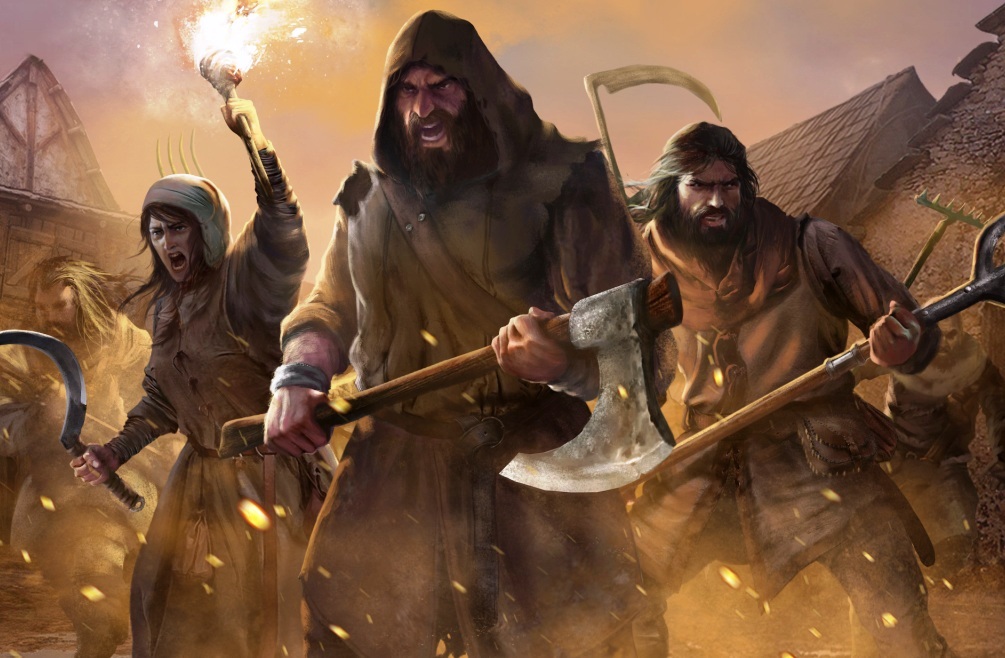Difference between revisions of "Grassroots Movement (sage ability)"
Tao alexis (talk | contribs) |
Tao alexis (talk | contribs) |
||
| Line 1: | Line 1: | ||
| − | '''Grassroots movement''' is an [[Knowledge Points#Knowledge_Status|authority]]-status [[Sage Ability|sage ability]] in the [[Sage Study|study]] of [[History (sage study)|History]]. | + | [[File:Grassroots Movement.jpg|right|560px|thumb]] |
| + | '''Grassroots movement''' is an [[Knowledge Points#Knowledge_Status|authority]]-status [[Sage Ability|sage ability]] in the [[Sage Study|study]] of [[History (sage study)|History]] which is accessible to the character within a geographical sphere where 30 or more points of knowledge is had. | ||
| + | __TOC__ | ||
| + | Possessing a deep knowledge of history, particularly the accounts of grassroots movements in ages past, the character gains a unique ability to intuitively recognise and foment political issues already present in local communities. Common issues include oppressive taxation, land rights, unfair labor conditions, unfair treatment by feudal lords, economic hardship, disputes with the church. Through speeches and financial contributions, the character is able so organise, protests, petitions, boycotts, refusal to pay taxes or even outright rebellions. | ||
| − | + | The dungeon master should provide the character with knowledge about which political issue offers the best choice for building a movement. | |
| − | == | + | == Step One: the First March == |
| − | The character must | + | In planning the initial movement, the character should choose a [[Type-4 Hex|type-4 hex]], as this includes a moderate-sized [[Village|village]], which may or may not be a [[Settlement|settlement]]. The first step is to organise a simple protest, asking for the local [[Commoner (non-player character)|commoners]] to gather and move through the few streets of the village, carrying make-shift standards and perhaps a few signs, to make their grievances known to the local authority. |
| + | |||
| + | The character must lay out a cost of 1 silver piece per resident and rolls 1d4 +1 to see how many days the character must spend meeting and discussing with members of the community while paying out the aforementioned coin. At the end of this period, a march is announced a week hence. At that time, a crowd of 1d6 persons per [[Experience Level|experience level]] of the character appears. If this crowd numbers 21 or more, the character makes a [[Ability Checks|charisma check]]. | ||
| + | |||
| + | If this is successful, the authority present shall appear to address the crowd. A parley then follows between the authority, the character and the most important two members of the common crowd. Nothing can come of this parley, except that the entities meet and are afterwards known to one another. | ||
| + | |||
| + | == Step Two: Petition == | ||
| − | |||
| − | |||
| − | |||
| − | |||
| − | |||
[[Category: Sage Abilities]] | [[Category: Sage Abilities]] | ||
Revision as of 21:22, 27 October 2023
Grassroots movement is an authority-status sage ability in the study of History which is accessible to the character within a geographical sphere where 30 or more points of knowledge is had.
Possessing a deep knowledge of history, particularly the accounts of grassroots movements in ages past, the character gains a unique ability to intuitively recognise and foment political issues already present in local communities. Common issues include oppressive taxation, land rights, unfair labor conditions, unfair treatment by feudal lords, economic hardship, disputes with the church. Through speeches and financial contributions, the character is able so organise, protests, petitions, boycotts, refusal to pay taxes or even outright rebellions.
The dungeon master should provide the character with knowledge about which political issue offers the best choice for building a movement.
Step One: the First March
In planning the initial movement, the character should choose a type-4 hex, as this includes a moderate-sized village, which may or may not be a settlement. The first step is to organise a simple protest, asking for the local commoners to gather and move through the few streets of the village, carrying make-shift standards and perhaps a few signs, to make their grievances known to the local authority.
The character must lay out a cost of 1 silver piece per resident and rolls 1d4 +1 to see how many days the character must spend meeting and discussing with members of the community while paying out the aforementioned coin. At the end of this period, a march is announced a week hence. At that time, a crowd of 1d6 persons per experience level of the character appears. If this crowd numbers 21 or more, the character makes a charisma check.
If this is successful, the authority present shall appear to address the crowd. A parley then follows between the authority, the character and the most important two members of the common crowd. Nothing can come of this parley, except that the entities meet and are afterwards known to one another.
